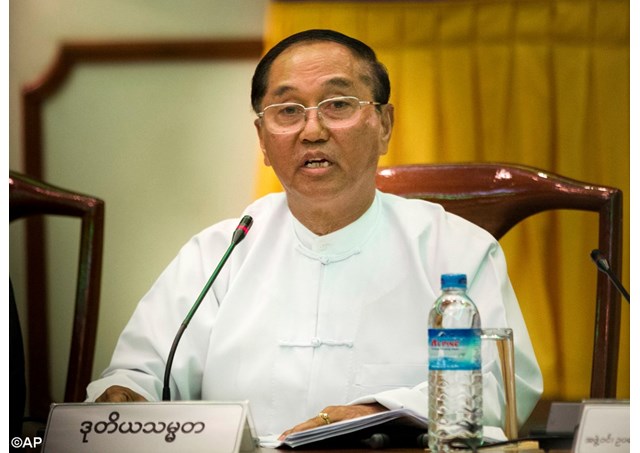
HRW rejects Myanmar report denying abuses against Rohingyas

(Vatican Radio) A Myanmar government commission’s report denying allegations of serious human rights abuses against ethnic Rohingyas in Rakhine state, has been denounced as “without a credible basis” by a leading human rights group. The commission’s wholesale rejection of grave abuses despite considerable evidence from independent sources, coupled with the Myanmar army’s earlier inadequate investigation, demonstrates the urgent need for the government to allow full access to the United Nations-mandated international fact-finding mission, said Human Rights Watch (HRW).
Commission - No evidence of crimes
Speaking at the release of the Rakhine Investigative Commission's final report on Sunday, Myint Swe, Vice President of Myanmar, formerly Burma, told reporters that ``there is no evidence of crimes against humanity and ethnic cleansing as the Office of the High Commissioner for Human Rights claimed.'' He also denied charges that there had been gang rapes by the military as it swept through Rohingya villages in a security clearance operation. The army was reacting to deadly attacks against border police posts by a previously unknown insurgent group in October 2016 in Rakhine.
“The commission’s findings are just the latest attempt to sweep under the rug the massive abuses against the Rohingya last year,” HRW deputy Asia director, Phil Robertson said on Aug. 7. “These atrocities aren’t going to disappear, so the sooner the UN fact-finding mission is allowed into Burma, the sooner those responsible can be identified and redress provided to the victims,” he added.
The commission concluded it could not confirm cases of rape, gang rape, torture, and killings in the villages it visited. The commission found that 1152 buildings were destroyed in 13 villages, but said it was too difficult to establish who set fire to the buildings.
Crimes against humanity
According to HRW, the security force operations caused massive displacement, with more than 70,000 Rohingya fleeing to neighboring Bangladesh and temporarily displacing another 20,000 within Myanmar. A report issued by the UN Office of the High Commissioner for Human Rights on February 3, concluded that the attacks against the Rohingya “very likely” amounted to crimes against humanity.
Commission report - incomplete, inaccurate, and false information
HRW said the 13-member commission used investigative methods that produced incomplete, inaccurate, and false information. Rights groups have previously expressed their doubts over the commission's work, saying it lacked outside experts, had poor research methodologies and lacked credibility because it was not independent. The U.N. has mandated its own fact-finding mission to travel to Rakhine to conduct its own inquiry, but the government has said its members will be denied entry visa.
Robertson said “the Investigation Commission on Rakhine State’s inept inquiry provides the strongest case yet for Burma letting in the UN fact-finding mission.” He urged Myanmar’s donors and diplomatic friends to pressure the government “to end their tactics of denial and obfuscation, and cease denying victims their right to the truth.”
| All the contents on this site are copyrighted ©. |


